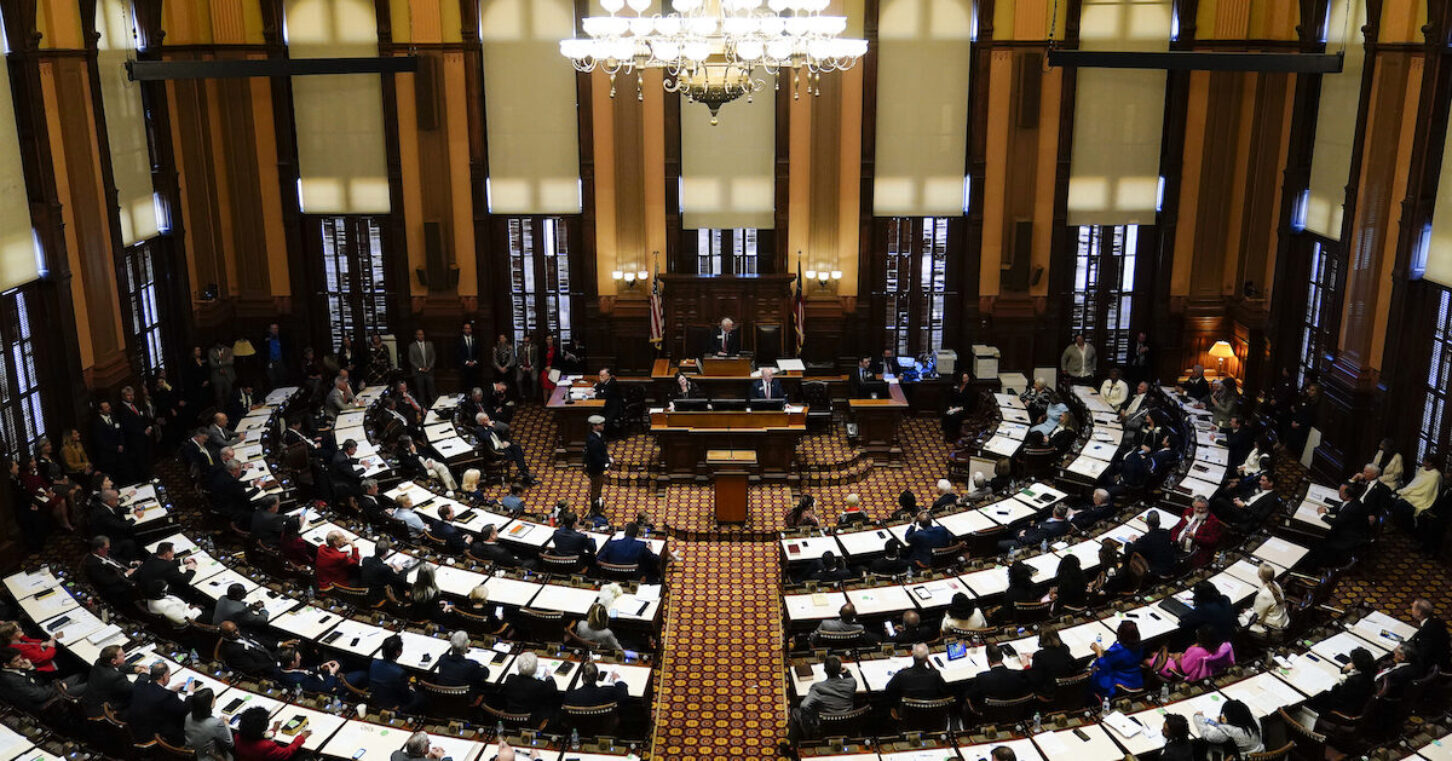
Note: Beginning January 18, the Foundation will send out our weekly At The Capitol email to subscribers on everything that happened the past week under the Gold Dome. Make sure you are getting updates.
The new year brings a new legislative session and a new crop of issues to be debated in the General Assembly over the next three months. After the November elections, the state House will welcome 20 new representatives, including eight Republicans and 12 Democrats, among their 180 members. While the Democrats won a net gain of two seats, Republicans retained their majority in the House. Republicans maintained their 33-23 majority in the state Senate, which will welcome three Democrats and one Republican in 2025.
While there is almost always an element of uncertainty in the lead up to any session, a few issues have been gaining attention for months and figure to be key points of contention once the session kicks off on January 13. Some of these policy topics will be holdovers or next steps from recent sessions, while others may see the spotlight for the first time.
Last year, the General Assembly made progress in several important areas. Notable reforms included the passage of Promise Scholarship Accounts, a revision of Georgia’s certificate of need laws, cuts to the state income tax and other efforts to maintain Georgia’s business-friendly status. With the start of a new two-year cycle, and as some current officeholders prepare for the 2026 elections, expect to see new issues on the table.
The highest profile of these is tort reform, or reducing plaintiffs’ ability to bring forth liability litigation or to reduce the amount of damages they can receive. While lawmakers continue to tout Georgia as the best state for business, frivolous lawsuits and nuclear verdicts hurt the state’s economy, result in job loss, increase costs for consumers and create a volatile judicial environment in which certain industries are faced with disproportionate risks.
While it is unclear which method of tort reform the legislature will pursue, Gov. Brian Kemp has stated his interest in tackling this issue going back to mid-2023. There is no shortage of opportunity. Nuclear verdicts, or court decisions that result in awards of $10 million or more, have been particularly harmful to certain industries. One of the nation’s most infamous nuclear verdicts – a $1.7 billion decision in a liability case involving Ford Motor Company – took place in Gwinnett County.
The legislature could also limit premises liability rulings – when businesses are held liable for crimes committed on their property, even when the business itself has no involvement – and work to eliminate the awarding of “phantom damages,” or awards based on what a patient was billed for medical treatment instead of what the patient’s insurer actually paid. No matter which way the legislature decides to go on tort reform, expect to see plenty of opposition to an issue that was heavily discussed last year before failing to gain any momentum.
Lawmakers and the governor’s office will have decisions to make regarding the state’s budget, and while the rising revenue the state has seen over the last few years may be slowing down, the government is still working with a surplus and large financial reserves. The state’s top spending priority will likely be relief spending for Hurricane Helene, which swept through Georgia last September. Beyond that, Gov. Kemp proposed a $1 billion tax refund that Georgians would collect when they file their taxes this year, and Lt. Gov. Burt Jones recently voiced his support for increased child tax credits.
The landmark creation of a private choice program last year may seem to forecast a relatively quiet year for education legislation. However, there are still plenty of opportunities to improve Georgia’s education system, including in relation to Promise Scholarships. Fully funding the Promise Scholarship program is a good start. School choice can be further facilitated by easing the process for students to transfer between traditional public schools. Lawmakers could also take steps to improve the local approval process for charter schools, the popularity of which is reflected by crowded waitlists.
No conversation about education policy would be complete without mentioning Georgia’s quality basic education (QBE) formula. Despite attempts and intentions to change the formula over the years, there has been no substantive reform or substitution for QBE since its inception. QBE turns 40 years old this year, so it will be interesting to see if this milestone spurs any action.
While the Foundation’s coverage of the session will mostly focus on economic policy, there are also a number of other issues, such as immigration policy and election laws, that could receive plenty of attention. An added factor to all of these debates is how federal policies under a new presidential administration will affect Georgia.
This new session offers plenty of opportunity for progress in a wide variety of public policy areas and to improve Georgians’ lives.
